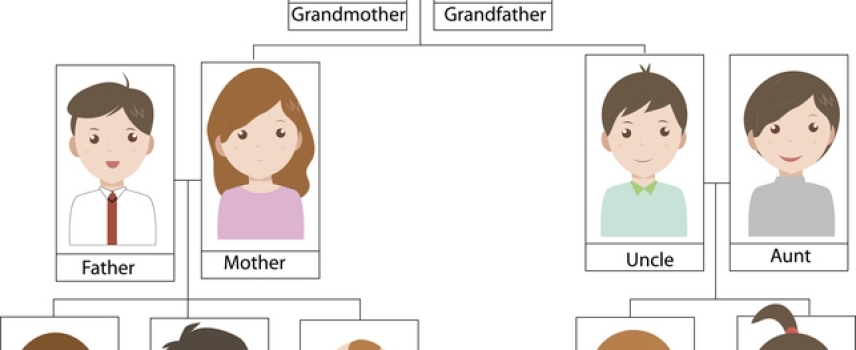I just wrapped up an intense three-day conference on Bowen Family Systems Theory, and it has sparked some intriguing thoughts about mainstream psychology’s approach to mental health. It struck me that conventional therapeutic models often overlook the broader family dynamics and patterns that are integral to understanding an individual’s mental health struggles and life challenges.
Bowen Family Systems Theory, pioneered by psychiatrist Murray Bowen in the mid-20th century, emphasizes the interconnectedness of family members. Instead of viewing a person’s behavior in isolation, this theory considers the complex network of relationships and interactions within a family system.
A Bowen therapist operates on the premise that an individual’s behavior is best understood in the context of their family unit. This approach contrasts with the more traditional individual therapy models, which focus primarily on the individual’s thoughts, feelings, and behaviors.
In Bowen Family Systems Therapy, the therapist’s role is to treat the individual and to understand and address the family as a whole. The therapist will work with family members to identify recurring patterns of behavior, explore family roles, and understand how emotional processes are handed down through generations. This process often involves constructing a detailed family genogram — a visual representation of the family tree, including information about relationships and significant life events.
Bowen therapists believe that change in any part of the system can impact the whole system. Therefore, they aim to improve the overall functioning of the family system rather than merely alleviating individual symptoms. This approach can lead to more sustainable changes as it addresses the root causes of issues rather than just symptoms.
In contrast, individual therapy models, such as the medical model, tend to focus on diagnosing and treating specific mental health disorders within the individual. These models often prioritize symptom reduction and may employ strategies like medication or cognitive-behavioral techniques. While these approaches can be effective, they sometimes overlook the broader family dynamics that could contribute to or exacerbate the individual’s issues.
Bowen Family Systems Theory offers a broader and more holistic perspective on mental health. It reminds us that we are not isolated beings but part of complex relational systems, and our behaviors and struggles cannot be fully understood or addressed in isolation. While individual therapy models have their merits, incorporating a systemic perspective can enrich our understanding and intervention strategies in dealing with mental health issues.
As we continue to evolve in our understanding of mental health, it is vital to consider the value of different therapeutic models and their unique contributions. The Bowen Family Systems Theory offers a valuable lens through which we can view and address mental health issues, emphasizing the significant role that family dynamics play in our psychological well-being.
Case Example
Consider the case of Emma and Leo, a couple who entered therapy presenting symptoms of anxiety and stress within their marriage. Emma, an over-functioning partner, took on excessive responsibility in the relationship, managing most household duties, finances, and emotional caretaking. This dynamic triggered Leo to under-functioning; he withdrew and avoided engaging in the relationship and household responsibilities, increasing their distance.
From a Bowenian perspective, the therapist would view this pattern as a manifestation of how each partner manages anxiety within the relationship. The over-functioning of Emma and the under-functioning and avoidance displayed by Leo are seen as complementary reactions that maintain a specific homeostasis in their relationship but at the cost of individual and relational health.
In therapy, the Bowen therapist would work with Emma and Leo to recognize and articulate these patterns of interaction. By increasing their self-awareness about these dynamics, the couple would begin to understand how their patterns of over- and under-functioning and their strategies for managing emotional distance contribute to their relational distress. The therapist would guide them in developing new ways to engage with each other that allow for more balanced functioning, encouraging each partner to take responsibility for their own reactions and to communicate more openly about their needs and concerns. This process aims to reduce anxiety and improve the functionality of the relationship as a system.
By broadening our perspective from the individual to the family system, we can achieve a more comprehensive understanding of mental health challenges and develop more effective strategies for intervention. Bowenian therapy is an approach that emphasizes the significance of family dynamics and advocates for the involvement of all family members in the therapeutic process, whether they are physically present in therapy sessions or are discussed within them. By acknowledging and addressing these underlying systemic factors, we can facilitate lasting change for individual clients and their relationships and families as a whole.
The pivotal Bowen Family Systems concepts include differentiation of self, triangulation, nuclear family emotional process, family projection process, multigenerational transmission process, and sibling position. Each concept offers a lens through which to view the interactions within a family system. Differentiation of self refers to an individual’s ability to separate their personal and emotional functioning from that of the family group. Triangulation is the diversion of conflict between two people by involving a third party. The nuclear family emotional process describes the patterns of emotional functioning in a single-family unit. The family projection process refers to the transmission of emotional issues from parents to children. The multigenerational transmission process extends this idea over several generations, revealing patterns that traverse beyond the immediate nuclear family. Lastly, sibling position theories offer insight into the potential impact of birth order on personality and behavior. In summary, Bowenian Family Systems Therapy focuses on these larger interaction systems and their influence on individual behavior and mental health.
In essence, Bowen’s Family Systems Theory perceives the family as an intricate emotional unit akin to a solar system bound by the gravity of its shared emotions and relationships. Just as planets are held in their orbits by the inexorable pull of gravity, family members are kept within the sphere of familial influence, their roles and interactions governed by the invisible forces of their emotional connections. These forces guide behavior, shape personalities over generations, and maintain the family balance. By viewing the family through this systemic lens, we can appreciate the interconnectedness of the family members’ emotional well-being, just as we understand the interconnectedness of celestial bodies governed by gravitational force. This perspective encourages us to consider the broader patterns of interaction that define a family system, underscoring the concept that no member operates in isolation, much like no planet moves through space unguided by the forces surrounding it.
Did you enjoy reading this article?
Once a week I send out a newsletter with new articles and unique content for readers. It is my way of staying in touch with you and giving you free advice based on some important topics.
Click here to sign up for my newsletter.





